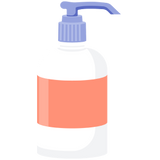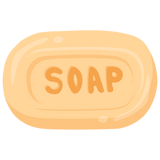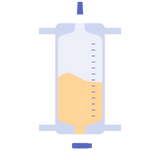
IV Fluids vs. Oral Rehydration: Which is Right for You?
Posted by Pankaj Dhiman on Feb 12th 2024
In today's fast-paced world, staying hydrated is crucial for maintaining good health and overall well-being. Whether you're recovering from illness, exerting yourself physically, or simply trying to combat dehydration, choosing the right method of rehydration is essential. Two common options for rehydration are intravenous (IV) fluids and oral rehydration solutions (ORS). But which one is right for you? Let's delve into the differences, benefits, and considerations of each to help you make an informed decision.
Must Read: What Is IV Therapy? Benefits Of IV Drips and Where to get
IV Fluids: Fast and Effective Hydration
Intravenous (IV) fluids are administered directly into the bloodstream through a vein. They consist of a mixture of water, electrolytes, and sometimes medications, depending on the individual's needs. IV fluids are commonly used in hospitals and medical settings to quickly replenish fluids, electrolytes, and nutrients in patients who are unable to consume liquids orally or require immediate hydration.
Benefits of IV Fluids:
- Rapid Hydration: IV fluids bypass the digestive system, allowing for rapid absorption and hydration, making them ideal for patients with severe dehydration or those unable to tolerate oral intake.
- Precise Electrolyte Balance: Healthcare providers can customize IV fluid formulations to address specific electrolyte imbalances, ensuring optimal electrolyte levels in the body.
- Nutrient Delivery: IV fluids can be supplemented with vitamins, minerals, and medications, providing additional support for patients with nutritional deficiencies or specific medical conditions.
Must Read: Head Injuries: Unraveling Causes, Symptoms & Prevention for a Secure Future
Considerations for IV Fluids:
- Invasive Procedure: IV administration requires needle insertion into a vein, which may cause discomfort, bruising, or infection at the injection site.
- Cost and Accessibility: IV therapy is typically more expensive than oral rehydration and may require medical supervision, limiting its accessibility outside of healthcare facilities.
- Potential Risks: While rare, IV therapy carries risks such as vein irritation, fluid overload, electrolyte imbalances, and allergic reactions to the infusion components.
Oral Rehydration Solutions (ORS): Convenient and Accessible Hydration
Oral rehydration solutions (ORS) are fluid replacements containing a precise balance of water, electrolytes, and carbohydrates. They are designed to be consumed orally and are available in various forms, including powders, pre-mixed solutions, and tablets. ORS is commonly used to prevent and treat dehydration caused by diarrhea, vomiting, excessive sweating, or strenuous exercise.
Must Read: 12 Best Selling Wound Care Products in US
Benefits of ORS:
- Ease of Use: ORS can be easily prepared and consumed at home, making them convenient for self-administration and suitable for mild to moderate dehydration cases.
- Cost-Effective: ORS products are generally affordable and widely available over-the-counter without the need for a prescription, making them accessible to the general population.
- Gentle on the Body: Oral rehydration is non-invasive and well-tolerated, making it suitable for children, elderly individuals, and those with minor dehydration symptoms.
Must Read: Neuromuscular Disorders: Types, Symptoms, Diagnosis & Treatment Options
Considerations for ORS:
- Limited Absorption Rate: Oral rehydration may have a slower absorption rate compared to IV fluids, especially in cases of severe dehydration or impaired gastrointestinal function.
- Taste and Palatability: Some individuals may find ORS solutions unpalatable or difficult to tolerate, particularly during episodes of nausea or vomiting.
- Inadequate Nutrient Replacement: While ORS products contain essential electrolytes, they may lack sufficient nutrients or medications required for specific medical conditions, necessitating alternative treatment approaches.
Choosing the Right Option for You
When deciding between IV fluids and oral rehydration, several factors should be considered, including the severity of dehydration, underlying medical conditions, accessibility, and personal preferences. In cases of severe dehydration, compromised gastrointestinal function, or the need for rapid hydration, IV fluids may be the preferred choice under medical supervision. However, for mild to moderate dehydration or situations where oral intake is feasible, ORS offers a convenient and cost-effective solution for rehydration.
Ultimately, consulting with a healthcare professional is essential to determine the most appropriate rehydration method based on individual needs and circumstances. Whether it's IV fluids or oral rehydration, prioritizing hydration is key to maintaining optimal health and well-being.
Must Read: Where AI will impact healthcare in 2024
Final Words
Hydration plays a vital role in supporting bodily functions, promoting recovery, and maintaining overall health. Whether you opt for IV fluids or oral rehydration, ensuring adequate fluid intake is essential for staying hydrated and preventing dehydration-related complications. By understanding the differences, benefits, and considerations of each rehydration method, you can make an informed decision that aligns with your needs and preferences.
FAQs
Is IV fluid therapy painful?
IV insertion may cause discomfort or a slight sting, but it shouldn't be painful. Healthcare professionals are trained to minimize discomfort during the procedure.
Can I administer ORS to myself at home?
Yes, ORS products are designed for self-administration and are available over-the-counter without a prescription. Follow the instructions on the product packaging for proper preparation and dosage.
Are there any side effects of oral rehydration solutions?
Side effects of ORS are rare but may include nausea, bloating, or diarrhea, particularly if consumed in excessive amounts. It's essential to follow recommended dosage guidelines and seek medical attention if adverse reactions occur.




















